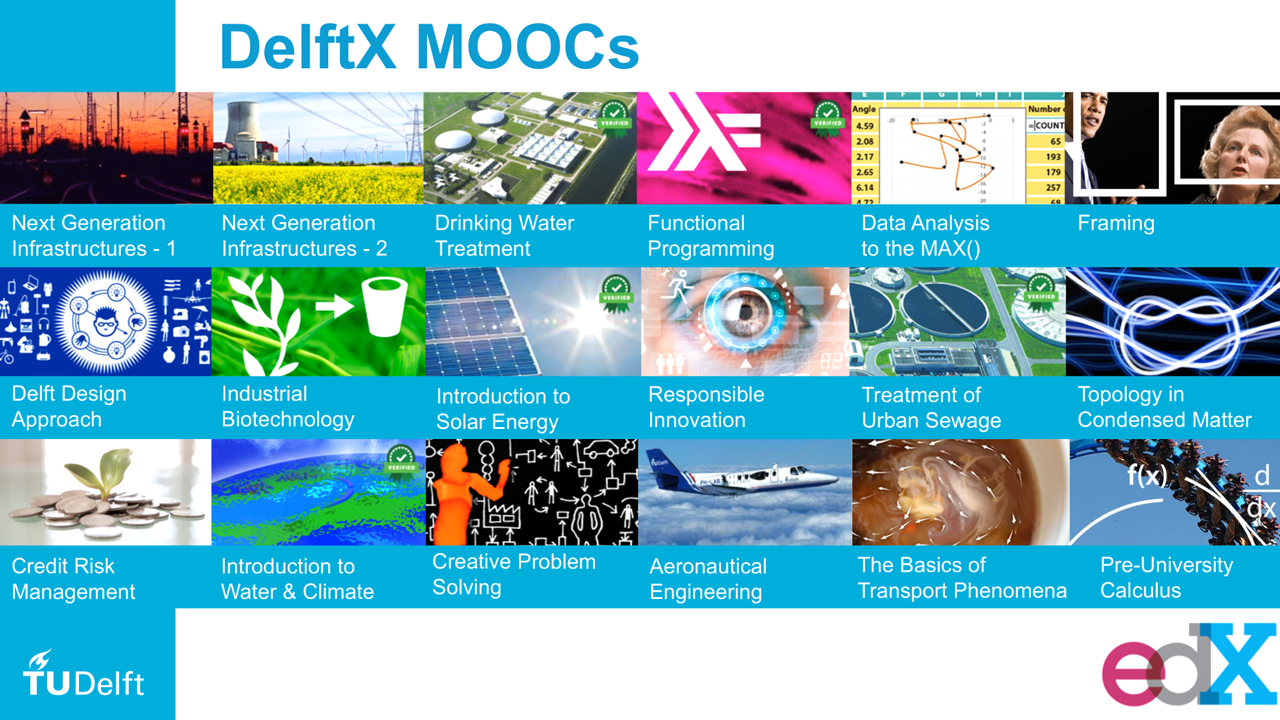Update TU Delft MOOCs
It has been a while that I have gave you an update about our MOOC activities. A lot of information I shared with the people that attended the Action Lab at OEGlobal, but that session wasn't recorded. So here is the update.
MOOCs
Since we began in 2013 we have developed 18 MOOCs. Some MOOC have run for multiple times. In total we already have more than 415,000 enrolments and have issued more than 12,000 certificates (1062 ID-verified).
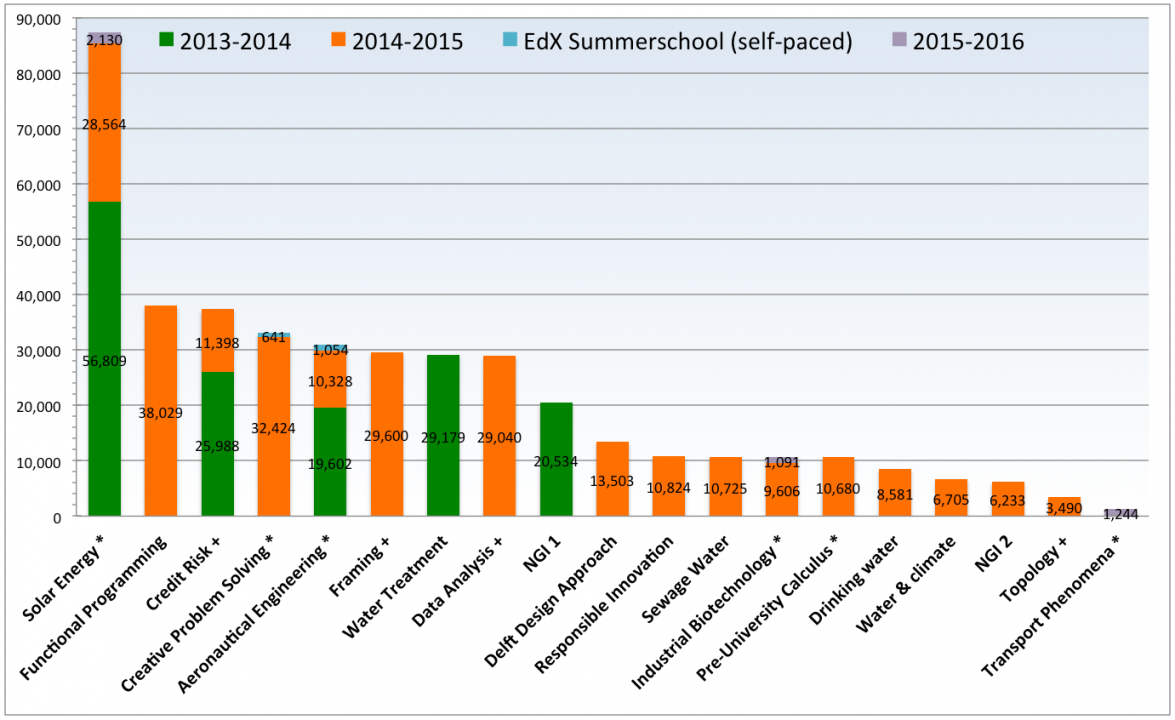
New audiences
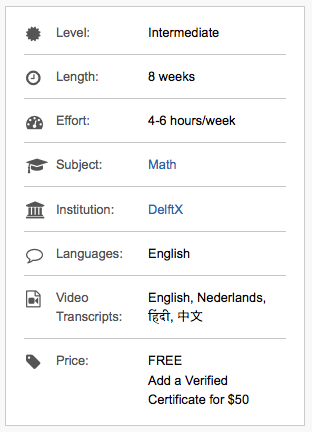
The first MOOCs we run were aiming at Bachelor students. This year we added some MOOCs that will attract other audiences. For example, the course Topology of Condensed Matter is much more directed toward Master and PhD students with a background in physics. We didn't expect a lot of learners, but still got more than 3,000. 50% of the learners has an advanced degree (Master or higher). Interesting is that the average age is lower than normal (27 instead of 29 in most courses).
Another course is the pre-university calculus course that focuses on high school students. 40% of the learners has a high school diploma as highest diploma. This course will start in July and the goal is to freshen up their math before they start at college or university in September. Already more than 10k learners signed up.
Self-Paced Courses
This summer we are offering two of our courses as self-paced courses starting on June 2nd. This means that there is almost now involvement of the teacher, but we do have student assistants moderating the forums. The courses we are offering are:
Translations
By default we offer English transcript. For the course Data Analysis to the MAX() we also translated the transcripts to Dutch, Hindi and Mandarin.
Because we also publish our MOOC content with an open license on ocw.tudelft.nl, the course Water Treatment is also translated to Japanese.
Sublicensing
�We are strong on openness, but also have to earn some money to cover our costs. Key questions are:
- Is it possible to sublicense a MOOC and uphold our Open Policy?
- Is our Open Policy threatened when we sublicense our MOOCs?�
Most sublicensing models are based on the licensing of content, but that doesn't work with our open license model. My colleague Martijn presented our solution at the OEGlobal Conference. I think we found a good solution that combines our open policy with sublicensing. The main slide is below:
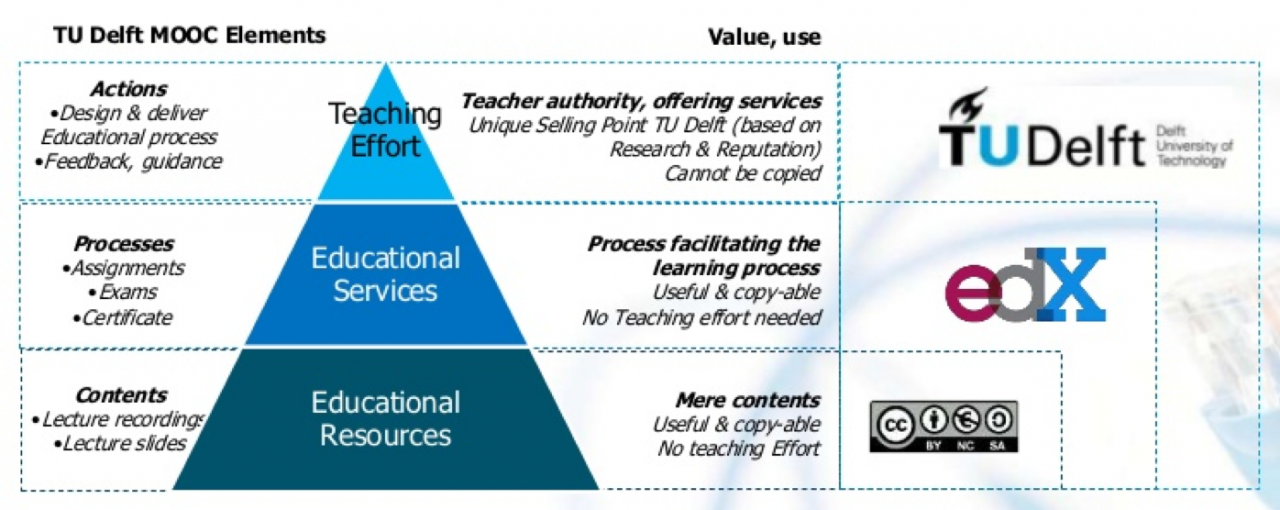
Basically it means that our course materials are all openly-licensed, but you need a license with us if you want our Educational Services and Teacher Effort.
Based on this model, we got a sublicensing deal with Arabic MOOC platform EdRaak and there is interest from other organisations.
Online Learning Experiences
As part of our continues activities to enhance the quality of our courses we developed the online learning experience. The Online Learning Experience (OLE) is a student-centred, online learning model that holds eight interrelated principles, which define TU Delft�s online courses.
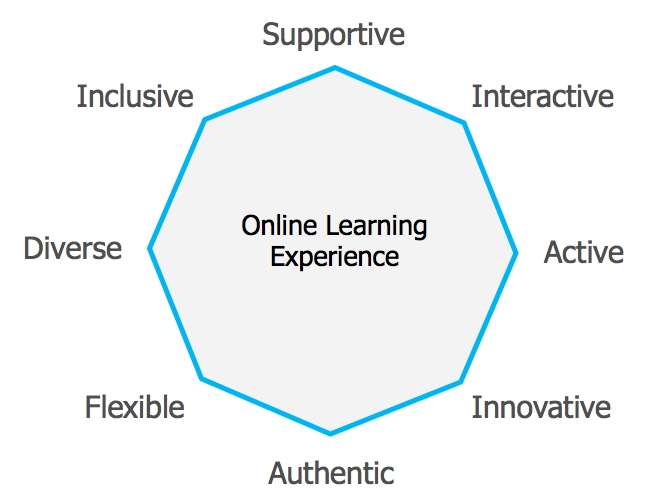
In the presentation below the model is explained:
At the EDEN Conference in Barcelona (Friday, parallel session H1) Nelson Jorge, Sofia Dopper and I will present the model in more detail, based on the paper we have written about it.
Future developments
There are more developments, but those I can't publish yet. So watch this space for more updates.
No feedback yet
Form is loading...
